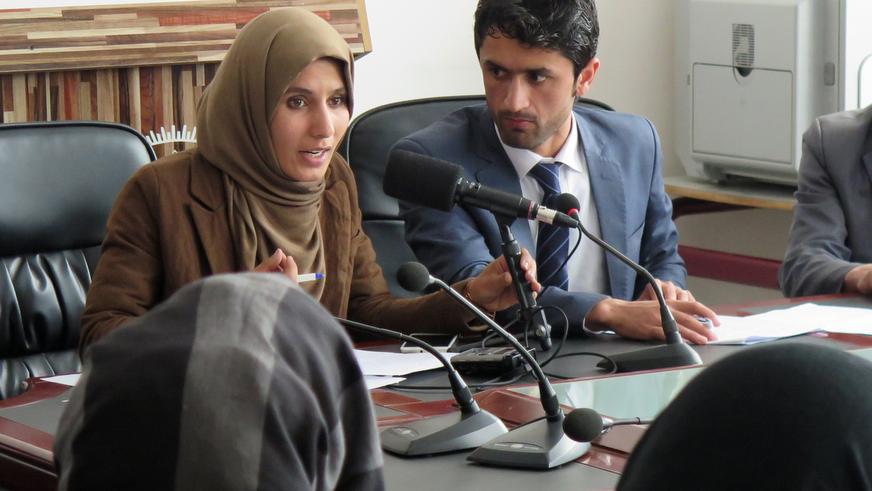KAPISA - Afghan youth can play an essential role in raising awareness of women’s rights and contributing to a positive interpretation of women under Islam, according to participants at a UNAMA-backed forum in central Kapisa province.
Around 30 people – including local law, Sharia and journalism university students, along with provincial legal specialists and the representative of a women’s shelter – discussed women’s access to justice in the province.
The forum was the first of four student-led gatherings in the province, each of which the students themselves will turn into a radio programme for broadcast by local radio in the province.
Mohammad Iqbal, a law student, said that implementation of existing laws can help to decrease violence against women.
Mr. Iqbal said that illiteracy was a key factor in perpetuating violence, particularly in rural areas. Improved security meant girls could attend school, become educated and transfer knowledge to their children and to society.
Aisha Ahmadi, a fellow law student, also pointed to the key role of education: “Women have financial and non-financial rights in the family. Being able to educate themselves is their non-financial right.”
Zainullah Sadiq, a Sharia law student, said that women and men are equal according to Islam, with each having specific values.
Mr. Sadiq said that as some people misinterpreted Islam, women needed to defend their rights based on religion.
The Kapisa activity is part of UNAMA’s engagement with communities across the country. By supporting independent discussions that can be shared by local media, UNAMA contributes to creating platforms for Afghans to have a voice so they can be heard.
Kapisa province – the smallest of Afghanistan’s province by population – is located northeast of Kabul. It is mainly mountainous with many remote communities.
UNAMA is mandated to support the Afghan Government and the people of Afghanistan as a political mission that provides good offices; promotes coherent development support by the international community; supports the process of peace and reconciliation; monitors and promotes human rights and the protection of civilians in armed conflict; promotes good governance; and encourages regional cooperation.






